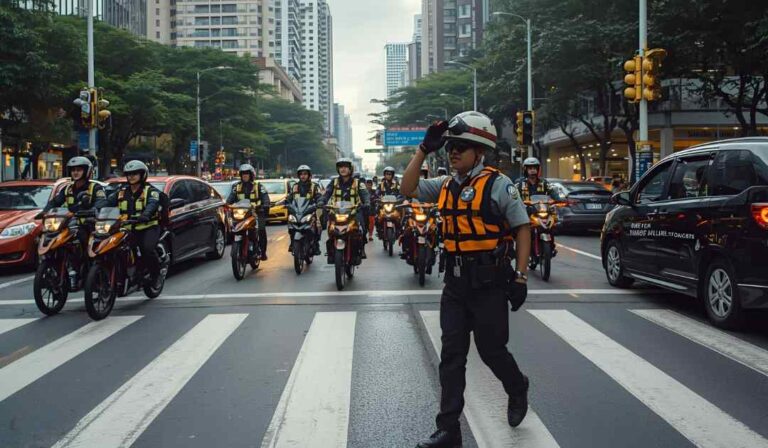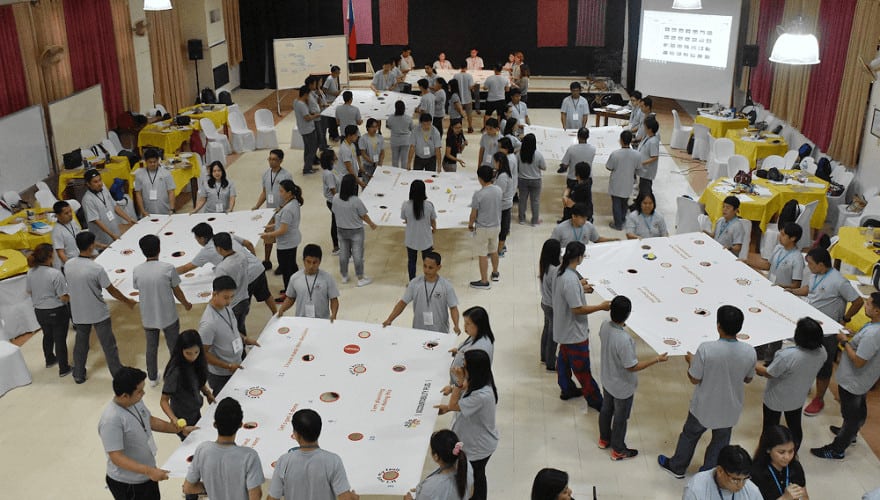It was one of those sticky afternoons in Makati, the kind where traffic lights feel longer than they should. I was inching forward when the car in front of me hesitated — unsure if it should turn left or right. I stopped just behind it. My bumper was close to the pedestrian lane, but not on it.
Then the light turned red.
Cars on my left and right went forward smoothly. None of them were stopped.
But me? An enforcer waved me over.
“Sir, crossing the line ka.”
I was puzzled. Crossing the line? I wasn’t on the pedestrian lane. The only reason I stopped there was because the car ahead stopped. But logic didn’t matter. He wanted my license.
I contested the apprehension. “Pero sir, how about the cars beside me? Same situation. They weren’t stopped.”
He insisted. Then came the drawn-out warning: “Mahihirapan ka mag-claim ng lisensya. Ang daming requirements. Sayang oras mo.”
You know what he meant. He was hinting at the easy way out: a bribe.
But I didn’t want to play that game. So I told him, “Ticket na lang.”
That’s when he confiscated my license anyway and told me to claim it at City Hall.
What followed was a mess. At City Hall, my license wasn’t even there. It took me three attempts, wasting about four more hours of my day, before I finally held my card again. The enforcer who apprehended me never even showed his face. And I was forced to pay a ticket for a violation I didn’t commit.
At that moment, the inconvenience didn’t feel like discipline. It felt like harassment.
The Question Every Driver Asks
If you’ve ever been in a similar situation, you probably asked yourself:
- Can enforcers really confiscate my license for something like this?
- Is it even legal for LGU enforcers to take it?
- What should I do if I’m sure I didn’t commit a violation?
- How do I avoid hours of wasted time like what happened to me?
Let’s unpack this — story and law side by side.
What the Law Actually Says
First, the basics. Under Republic Act 4136 (the Land Transportation and Traffic Code):
- Only the LTO and its deputized agents can confiscate your driver’s license.
- That means local enforcers or MMDA personnel cannot just take your license unless they’re deputized by the LTO.
- Confiscation is not for every violation.
- Minor violations usually result in a fine. Your license stays with you.
- Serious or repeat violations — reckless driving, DUI, causing injury, repeated seatbelt or OR/CR lapses — can lead to confiscation, suspension, or even revocation.
- If your license is confiscated, you must be issued a Temporary Operator’s Permit (TOP).
- This TOP acts as your temporary license until you settle the violation.
- If no TOP is issued, and they just hold your license, that’s irregular.
In short: not all violations merit confiscation, and not all enforcers are legally authorized to take your license.
What Really Happens on the Road
But law and practice don’t always match.
On paper, your rights are clear. On the road, many drivers are pressured. They’re told horror stories about claiming their license, about endless lines, about wasted time. It’s the perfect setup for one thing: to make bribery look “easier.”
That’s why many honest drivers — even if they know they’re right — end up caving.
Imagine This…
You’re driving home from work. Rain is about to fall. Traffic is heavy, but manageable. Suddenly, the car ahead stops in confusion. You adjust, you stop. Light turns red.
From your left and right, cars slide forward. Smooth. But the enforcer’s whistle pierces the air — and it’s aimed at you.
You roll down the window.
“Boss, violation ka.”
You explain, calmly. He doesn’t listen. Instead, he leans in, voice lowered: “Alam mo sir, hassle ‘to. Claiming license? Sakit sa ulo. Pero may paraan…”
At that moment, your choices are clear: argue, pay under the table, or surrender to the hassle.
And if you’re like me — you don’t bribe — then prepare for inconvenience.
What You Can Do to Protect Your Rights
So, what can we actually do? How do we keep our dignity without losing hours of our lives?
Here’s a step-by-step guide:
- Stay calm and respectful.
Don’t escalate. Anger only makes the situation worse. Keep your voice level. - Ask if the enforcer is LTO-deputized.
If they are not, politely say: “Sir, under RA 4136, only LTO or deputized enforcers can confiscate licenses. You can issue me a ticket, but not take my license.” - Request a TOP.
If they insist on confiscation, they must issue a Temporary Operator’s Permit. No TOP? That’s irregular. - Document the encounter.
Write down the enforcer’s name, badge, time, and place. Kung kaya, take a photo or video. It protects you later. - Contest violations properly.
Yes, it’s a hassle. But filing a contest (or even just paying properly instead of bribing) chips away at the culture of corruption.
What to Carry With You
Sometimes, arguments drag because drivers don’t have the right papers. Protect yourself by always carrying:
- Driver’s license (of course).
- Vehicle OR/CR (original or official copy).
- LTO guide or printout of RA 4136 key provisions (yes, bring a folded copy in your glove compartment — very useful if you need to point to the law).
- A dashcam or phone with recording capability.
The goal isn’t to fight. It’s to show you know your rights — clearly, calmly, and legally.
Why This Inconvenience Feels Like Harassment
Being stopped once is fine. If you truly violated, pay the fine. That’s discipline.
But being stopped over and over, for questionable reasons, while others committing the same action are ignored? That feels less like traffic enforcement, more like selective harassment.
And every extra hour you lose at City Hall, every runaround you get when your license “isn’t there yet,” only deepens that frustration.
It’s not about the fine anymore. It’s about fairness.
The Bigger Picture
Why should you care enough to contest and protect your rights? Because every time we allow shady practices, bribery looks normal.
Every time we say “ticket na lang, boss” and refuse to bribe, we set a precedent. It costs us time, yes. But it also chips away at the culture that keeps drivers powerless.
Imagine if more drivers carried copies of RA 4136, asked for TOPs, documented names, and refused to bribe. Imagine how quickly practices would shift if more of us stood our ground.
Final Word: A Small Shift That Matters
The day I spent four hours reclaiming my license in Makati, I walked away tired but firm. I didn’t bribe. I followed the process, as flawed as it was.
It cost me time. But it bought me clarity: this isn’t just about me. It’s about every driver who’s been harassed, pressured, or cornered into paying on the spot.
So here’s my challenge for you:
Next time you’re stopped, don’t just think of the shortcut. Think of the long game. Know your rights, carry your documents, and insist on the legal process.
It may feel inconvenient. But every act of integrity brings us closer to a road where fairness — not fear — rules.
If you want Filipino values to show up as real behavior at work…
Let’s turn it into a culture shift experience.
→ Shift Experiences




